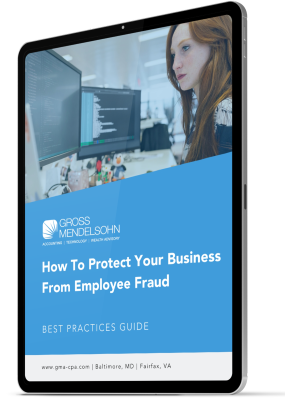Payroll theft comes in all shapes and sizes and often lies hidden below the surface. Fraudsters who perpetrate ghost employee schemes use the shadow of another employee to cover their tracks.
One of the best ways to prevent payroll theft is to understand what ghost employees are, and the motives behind their creation. Through a real-life case study, we look at how payroll fraud can be perpetrated, then offer strategies to uncover and prevent this kind of fraud.
What Is a Ghost Employee?
A ghost employee is a fictitious employee set up in a company’s human resource and/or payroll systems to enable a fraudster to receive undeserved payments. A ghost employee does not contribute to the organization or provide any services. Funds diverted to a ghost employee are often a method of embezzlement or personal enrichment for the perpetrator.
Case Study: The Manager’s Girlfriend
Let’s look at real-life scenario of an employee dishonesty insurance claim involving a ghost employee.
An area manager at a fast-food franchise chain oversaw the operations of multiple stores, including hiring, onboarding new employees and payroll submissions. The area manager and his direct subordinates, who are the general managers of each store, have the ability to enter and override timecards for other employees. For instance, if an employee forgets to clock in at 9 am and works an eight-hour shift, the manager can submit the time on behalf of the employee.
The area manager hired his friend as the general manager for one of the restaurants. The area manager then “hired” his girlfriend as a fictitious ghost employee. He submitted her paperwork to the franchise chain’s home office to be entered into the payroll and timecard system. He had access to her full name, social security number and other personal identifiable information needed for employee onboarding. For paychecks, he elected direct deposits and used his personal bank account instead of his girlfriend’s bank account.
Each week for payroll submission, the area manager manually entered the hours for the ghost employee, submitting regular and overtime hours. When payroll was reviewed at the corporate office, the payroll officer asked the store’s general manager (the area manager’s friend) about the frequent overrides, but the general manager always made an excuse, such as the employee forgot to clock in.
The fraud continued for months until the area manager was fired for poor store performance. The scheme unraveled when the payroll officer called about the overrides and spoke to a different manager at the store, who told the payroll officer that the store had no such employee. The total fraudulent wages and payroll taxes incurred was about $20,000.
How to Prevent Ghost Employee Schemes
The good news is that business owners can take steps to prevent ghost employee schemes. Even better, these same tactics will help prevent other types of fraud.
-
Segregation of duties divides the responsibilities of adding, modifying and removing employees among multiple individuals. This makes it more difficult for one person to fly under the radar when creating a ghost employee scheme.
-
Review payroll regularly. Scan payroll records such as payroll registers and compare items such as hours worked, pay rates to timecards and personnel files.
-
Require supporting documentation for new hires. Ask for personal identification such as a government-issued ID, social security card or other identifying information for personnel files.
-
If payroll anomalies are detected, such as frequent timecard overrides, ask more than one person with the ability to override system controls to confirm the legitimacy of the overrides.
-
Use biometric access or control systems to ensure that only legitimate employees have access to the workplace. This can help prevent fictitious employees from physically accessing the premises.
-
Check for duplicate entries in your payroll system, such as employees with similar names or identical bank account information.
-
Encourage employees to report any suspicious activity related to payroll, such as the existence of ghost employees, through a confidential whistleblower policy.
Need Help?
Contact us here or call 800.899.4623.


